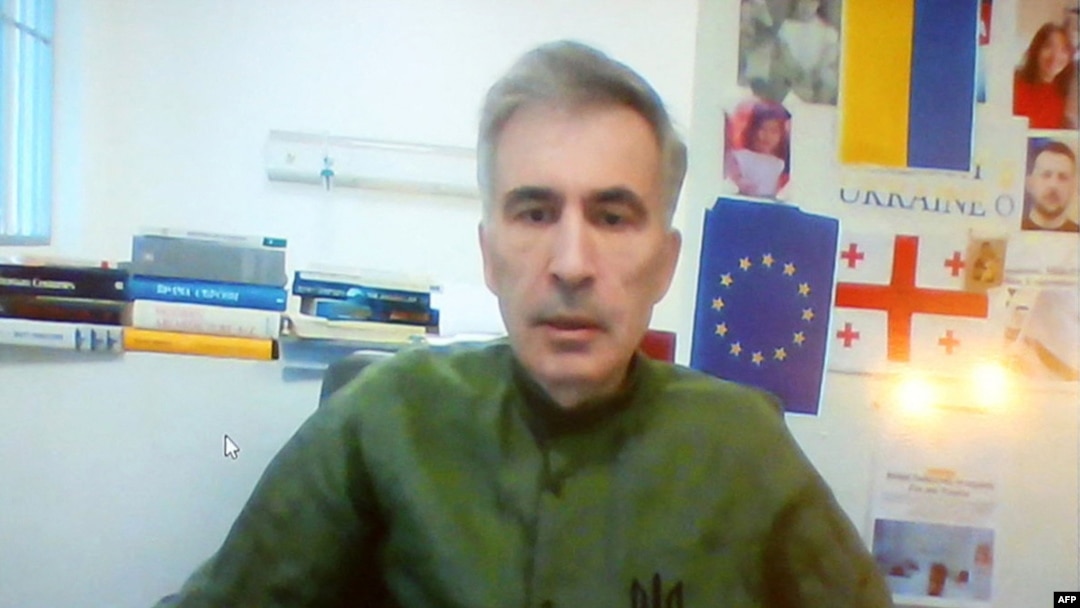Hundreds of supporters from Georgia's main opposition party gathered Thursday in the capital, Tbilisi, demanding their ex-leader's release from prison on the 20th anniversary of the country's pro-democracy revolution.
Mikheil Saakashvili spearheaded the bloodless Rose Revolution in 2003 and led the Black Sea nation for nine years before going into exile. After his return, he was arrested on abuse-of-power charges that rights groups say were politically motivated.
"The idea of a united, strong, democratic, European, free Georgia was a driving force of the Rose Revolution and its leader, Saakashvili," a leader from his United National Movement (UNM) party, Tina Bokuchava, told the gathering.
"The terrible injustice of Saakashvili's imprisonment must end," she said.
Saakashvili, 55, has accused prison guards of mistreatment, and doctors have raised serious concerns about his health since he staged a 50-day hunger strike.
"The Rose Revolution has changed Georgia's history for good, put it on a world map," Saakashvili wrote on Facebook. "Our revolution has laid the ground for dismantling the post-Soviet Russian system and made Georgia an example to follow for the whole world."
The Rose Revolution, which saw tens of thousands take to the streets against rigged elections and rampant corruption, reshaped Georgia and enabled sweeping political and economic reforms that helped to bring a more than threefold increase of per capita GDP.
But opponents have criticized the rule of its leaders - which saw police crackdowns on anti-government protests and abuse of inmates in prisons - as authoritarian.
The revolution also had a wider impact on post-Soviet countries such as Ukraine, where corrupt elites were ousted in the Orange Revolution the following year.
But the so-called "color revolutions" in Georgia, Ukraine and Kyrgyzstan have led to confrontation with the Kremlin, which has perceived the popular uprisings as a threat to its influence in what it sees as its backyard.




